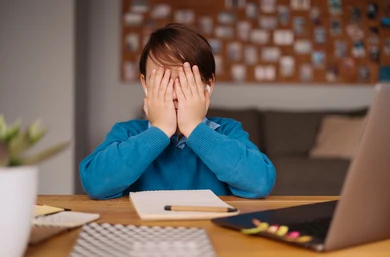Math can sometimes feel like an entirely different language, especially for kids navigating through numbers and equations. It’s like stepping into a world where everything looks familiar but doesn’t quite add up. For one little boy, math wasn’t just a challenge—it was a chance to discover the humor hidden in the classroom.
A little boy came home from school and told his father, “I got an F in math today.”
His father asked, “What happened?”
The boy explained, “Well, my teacher asked me, ‘What’s 3 times 2?’ and I said 6.”
His father said, “That’s correct.”
The boy continued, “I know. Then she asked me, ‘What’s 2 times 3?’”
Confused, the father asked, “What the heck is the difference?”
The boy replied, “That’s what I said!”
BONUS STORY: Do You Fart in Bed?
If this doesn’t make you laugh until you cry, let me know—I’ll pray for you. This story is about a couple who had been happily married for years. The only point of friction in their relationship was the husband’s habit of farting loudly every morning. The noise woke his wife, and the smell left her gasping for air.
Every morning she pleaded with him to stop, insisting it was making her sick. He told her it was natural and he couldn’t control it. She even suggested he see a doctor, worried that one day he’d blow his guts out.
Years passed, and his morning “routine” continued. But one Christmas morning, as the wife prepared the turkey, she came up with a devious plan. Looking at the bowl of innards—neck, gizzard, liver, and all the spare parts—a wicked thought crossed her mind.
While her husband was still asleep, she crept upstairs, pulled back the covers, and carefully poured the bowl of turkey guts into his underpants. Satisfied with her work, she went back downstairs.
Not long after, the usual sound of trumpeting was followed by a blood-curdling scream and frantic footsteps. The husband bolted to the bathroom.
The wife, struggling to contain her laughter, rolled on the floor with tears streaming down her face. She felt she had finally gotten her revenge.
About twenty minutes later, her husband came downstairs, pale and trembling, wearing his blood-stained underpants. He looked at her with sheer terror in his eyes.
“Honey,” he said, “you were right. All these years you’ve warned me, and I didn’t listen.”
“What do you mean?” she asked, biting her lip to keep from laughing.
“Well,” he said, “you always told me one day I’d fart my guts out. And today it finally happened. But by the grace of God, some Vaseline, and two fingers, I think I got most of them back in…”
Many of us get caught up in work, responsibilities, and routines, but humor is an essential part of navigating life’s challenges. Laughing not only relieves stress but also strengthens relationships and improves mental health. A good laugh allows us to see problems from a different perspective, turning difficulties into opportunities for growth.
Take, for instance, a father who tried to teach his son how to fix a car engine. Instead of a textbook lesson, the experience turned into an unexpected comedy of errors. After dropping a wrench in an engine compartment and getting oil stains on his shirt, laughter became the centerpiece of the lesson. In the end, the father and son didn’t just learn about mechanics; they learned about patience, humor, and the importance of teamwork.
Lessons in Mischief
Mischief, when done in good spirit, can be a wonderful teacher. It helps break down barriers and build camaraderie. In a college dorm, for example, roommates decided to prank each other by switching their alarm clocks. Instead of frustration, the prank resulted in laughter, communication, and an understanding of compromise. Mischief in these contexts isn’t about being reckless—it’s about learning flexibility, resilience, and perspective.
Sometimes, these playful acts reveal deeper truths. Whether it’s a light-hearted trick that strengthens a friendship or a family member’s unexpected funny antic during dinner, such moments show that life is about embracing imperfections and celebrating spontaneity.
Embracing Change with Humor
Life’s unexpected turns, like job losses, relocations, or health challenges, are rarely easy. However, humor provides a unique lens through which we can view change. A woman who lost her job once said, “I found out that laughter was my safety net. Every setback became a setup for a funny comeback.” Her attitude turned disappointment into resilience, showing that a sense of humor often carries us through the most trying situations.
Why Laughs and Mischief Matter
Incorporating humor and mischief into daily life allows us to:
- Strengthen Relationships: Laughing with someone builds trust and intimacy.
- Enhance Mental Health: Humor releases endorphins, making us feel better physically and emotionally.
- Encourage Resilience: Facing challenges with a smile allows us to pivot, adapt, and overcome setbacks more effectively.
- Foster Creativity: Thinking outside the box often means embracing spontaneity and surprise.
The Takeaway
Laughs, lessons, and a little bit of mischief aren’t just entertaining—they’re fundamental to personal growth, resilience, and happiness. They remind us that while life may be filled with challenges, it’s also full of opportunities to laugh at ourselves, learn from others, and experience moments of light-hearted joy. Embrace the quirks, celebrate spontaneity, and remember that sometimes, the best way forward is simply to enjoy the ride.

